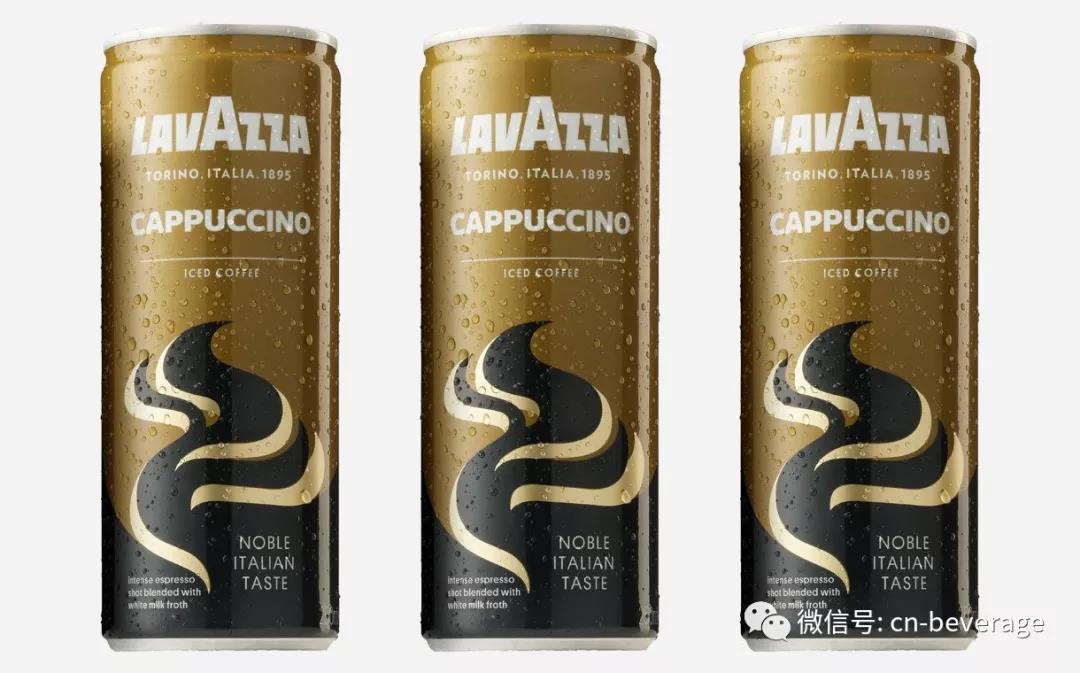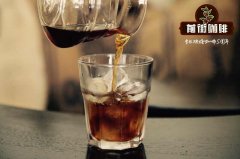Pepsi and Lavazza form a strategic partnership, Pepsi also want to enter the coffee market?

Professional coffee knowledge exchange more coffee bean information please follow the coffee workshop (Wechat official account cafe_style)
Century-old Italian coffee brand Lavazza and Pepsi have established a new strategic partnership to launch Lavazza's first instant iced coffee product in the UK, which will also lay the foundation for more products to be launched in the European market in the future.
Capitalizing on growing consumer demand for boutique coffee products, coffee expert Lavazza first entered the iced coffee market this summer with an iced cappuccino, a mixture of Lavazza coffee and milk and 100% recyclable quality cans.
The world's third-largest coffee supplier said in a statement that doing business in the UK was only the first step in co-operation and that the two sides were committed to accelerating innovation in this fast-growing iced coffee segment. To achieve this goal, Lavazza said the two companies will work together to launch new product lines in the future and open up new markets in 2020.
Sergio Cravero, chief marketing officer of Lavazza Group, said that the brand's commitment to quality, coupled with Pepsi's channels and expertise, enabled Lavazza to explore more ways to enjoy coffee in specific strategic markets and was in line with the group's mission to grow globally.
Mark Kirkham, vice president and head of beverage marketing for PepsiCo Western Europe, added that the introduction of Lavazza iced cappuccino to the UK market was the beginning of a partnership between the two sides, with Pepsi and Lavazza planning to innovate and launch new products in the growing high-end coffee market based on consumer opinions and preferences.
Join forces to expand the market share of coffee
The global coffee market is growing at about 6 per cent a year and is worth about $500 billion. According to Euromonitor International in 2018, the global coffee market was $83 billion last year, following a 5.5 per cent compound annual growth rate over the past five years. Nestl é, which ranks first, has a market share of 22.6 per cent, followed by Jacobs Douwe Egberts, which has a market share of 9.6 per cent, and Starbucks and Lavazza each with 2.5 per cent, tied for third place.
Nowadays, coffee-especially in the eyes of young consumers-is no longer seen as a completely separate drink in the beverage industry, and other drinks are also available where coffee is sold.
The shift has put pressure on big beverage brands to add coffee to their product lines; Rabobank predicted in August that giants such as Coca-Cola and Pepsi could soon enter the industry with both hot coffee and popular RTD products.
Coffee is a highly competitive market, companies can only do their best to retain consumers, and consumers are becoming more and more picky about how to spend money. About 1/4 of consumers said the quality of coffee was the biggest reason they became repeat customers. Industry insiders interviewed believe that this is the biggest continuing trend in the coffee industry. Therefore, it makes sense for coffee products to be high-quality, high-end consumer experience, strong combination of enterprises and even cross-domain cooperation.
In an effort to break through the high-end bottleneck, Nestl é launched Nespresso and bought a 68 per cent stake in boutique coffee Blue Bottle, which has 49 stores in the US and Japan and is popular for its unique coffee aesthetics, for $500m on September 14. In May last year, Nestl é struck the largest coffee deal in its 152-year history, buying Starbucks coffee retail for $7.15 billion.
Global consumer giant JAB Holdings has created the world's second-largest coffee giant Jacobs Douwe Egberts by merging the coffee business of DE Master Blenders 1753, a Dutch company that specialises in coffee and tea, and Mondelez International, an American company. JAB also acquired American coffee companies Green Mountain Coffee and Peets Coffee.
Coca-Cola, as predicted by Rabobank, acquired Costa, the world's second-largest coffee chain, on its way to becoming a full-fledged beverage company, closing the deal for $4.9 billion (£3.9 billion) in January and launching its first canned coffee line under the Costa brand last month.
When announcing the acquisition, James Quincey, CEO of Coca-Cola, said that Costa brings not only the brand to Coca-Cola, but also a platform for Coca-Cola to expand in the global $500 billion hot drink market. "I think there are a lot of exciting things we can do as Costa Coffee becomes part of our global coffee platform and our ability to grow in coffee. Obviously, ready-to-eat drinks are a good opportunity for us to focus on. " In addition, he believes that he can better cooperate with many customers from other channels to develop his coffee business in the future. He said earlier this year that the launch of ready-to-drink coffee products would be a prelude to the company's plans to expand its coffee platform.
In the face of the "invasion" of Italy, the birthplace of Western coffee culture, by foreign coffee chains such as Starbucks, Lavazza, the established Italian coffee family, has also accelerated the expansion of the global market, making a series of acquisitions in the past few years, including the acquisition of French coffee brand Carte Noire-- to help the company enter the top three in the global coffee industry. PepsiCo has forged a strategic partnership with Lavazza and entered the high-end ready-to-drink coffee market, which makes people wonder what kind of coffee platform this combination will create in the future. Is the carbonated drinks company also trying to test the coffee market?
END
Important Notice :
前街咖啡 FrontStreet Coffee has moved to new addredd:
FrontStreet Coffee Address: 315,Donghua East Road,GuangZhou
Tel:020 38364473
- Prev

Blue Book of Coffee consumption in China: take-out has become a new trend in buying coffee
Professional coffee knowledge exchange more coffee bean information please follow the coffee workshop (Wechat official account cafe_style) Guide at present, the domestic coffee market is in a stage of rapid development, the number of consumers is also growing rapidly. According to the forward-looking Industrial Research Institute, China's coffee consumption market was about 70 billion yuan in 2015, accounting for about 0.5% of the global market. And Chinese coffee.
- Next

2019 Sun / Water washing Rose Summer double Champion Alida Manor Panama Coffee Electronics Show
Professional coffee knowledge exchange more coffee bean information please follow the coffee workshop (Wechat official account cafe_style) the best Panamanian specialty coffee electronic exhibition-July 16, 2019. There are 174 contestants in the competition this year. The international jury, composed of 21 judges from Australia, Bulgaria, China, Japan, Taiwan, South Korea, Hong Kong and the United States, selected five categories.
Related
- Unexpected! Ruixing Telunsu lattes use a smoothie machine to foam milk?!
- % Arabia's first store in Henan opens into the village?! Netizen: Thought it was P's
- Does an authentic standard mocha coffee recipe use chocolate sauce or powder? Mocha Latte/Dirty Coffee/Salty Mocha Coffee Recipe Share!
- What is the difference between Vietnam egg coffee and Norway egg coffee? Hand-brewed single product coffee filter paper filter cloth filter flat solution!
- What is the difference between sun-cured and honey-treated coffee? What are the differences in the flavor characteristics of sun-honey coffee?
- How to make Italian latte! How much milk does a standard latte use/what should the ratio of coffee to milk be?
- How to make butter American/butter latte/butter Dirty coffee? Is hand-brewed coffee good with butter?
- Is Dirty the cold version of Australian White? What is the difference between dirty coffee/decent coffee and Australian white espresso?
- Relationship between brewing time and coffee extraction parameters How to make the brewing time fall to 2 minutes?
- Got entangled?! Lucky opens a new store, Mixue Ice City, and pursues it as a neighbor!

